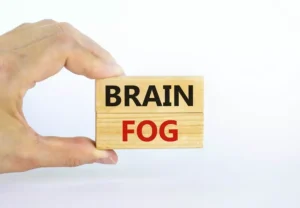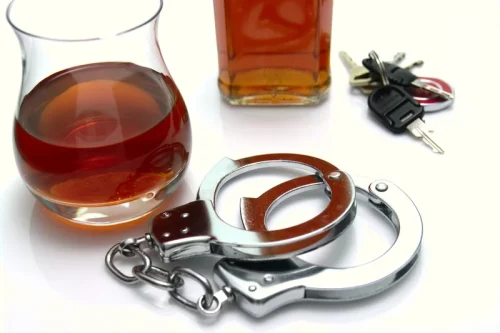How to Recognize Internal vs External Relapse Triggers

Every individual in recovery from a drug or alcohol addiction needs to work each day to keep their sobriety. During recovery, each person will encounter triggers that could result in relapse. Knowing and understanding how triggers work and being aware of your personal triggers are critical aspects of safeguarding your recovery.
Learn about some common triggers that raise the risk of relapse and how they can be avoided.
While many triggers can be negative experiences, it is important to note that positive events can trigger relapsing as well. „Therapies such as cognitive-behavioral therapy, dialectical behavior therapy, and trauma-focused therapies such as exposure therapy are highly effective in helping people learn to cope with triggers,“ Mezulis explains. Triggers vary widely from person to person and can be internal or external.

Understanding Mental Health Triggers

This external stimulus would lead the individual to repeat drug use or relapse after a period of abstinence. Addiction models constructed upon this observation consider the trigger as a stimulus able to activate drug related memories leading to reward anticipation and craving responses. As a consequence, derived therapeutic approaches suggest to avoid the trigger or provide the individuals with cognitive capabilities to control that emotional response provoked by the trigger.
- Gatehouse Treatment would like to help you overcome your relapse triggers.
- We aim to support the widest array of browsers and assistive technologies as possible, so our users can choose the best fitting tools for them, with as few limitations as possible.
- Individuals may suffer from uncontrollable drug or alcohol cravings when exposed to certain cues.
- If you or a loved one are struggling with addiction or co-occurring disorders, call the New England Recovery Center today at MyRehab.
- Researchers highlighted the importance of avoiding the people, places and things that remind patients of their former lifestyle.
Seeking Help for Addiction at North Georgia Recovery Center
An external trigger is a person, place or thing from the outside world that sparks feelings related to substance use. External triggers can include the people someone used drugs with, places they would get drugs and paraphernalia they would use to consume drugs. External triggers may surround a person, but they are visible and easy to acknowledge in most cases.
- Other avoidable triggers include people, for example, talking to their former dealer or abusive partner.
- It’s important for people in recovery to be aware of the internal triggers they struggle with the most and have a plan in place to seek support when needed.
- A relapse trigger, whether internal or external, is something that sets off cravings in recovering individuals.
- Whereas external triggers are defined as people, places and things; internal triggers generally fall under hunger, anger, loneliness or fatigue.
- This includes substance use disorders, eating disorders, and anxiety.
- Our suggestion is to promote resilience as a therapeutic tool to treat frustration.
How Yoga for Addiction Recovery Works
Triggers do not necessarily lead to relapse, but they do make it harder to resist substances because of the cravings they produce. This is why it’s so important to recognize your triggers and have healthy ways to cope. A trigger is social, psychological, and emotional situations and events that compel an addicted person to seek their substance of choice, eventually leading them to relapse. When an addicted person uses drugs or alcohol for a prolonged period of time, it changes the brain—eventually associating certain stimuli with the desire to drink or do drugs. In the context of mental health conditions, internal triggers are the cognitive and emotional cues that lead to a relapse of symptoms. For example, negative thoughts and feelings might trigger a relapse of drug or alcohol use.
In addition, they might show you different alternative therapies that can help manage these triggers. Activities like breathing exercises that allow a person to clear their mind of thoughts internal vs external triggers and refocus their awareness can be powerful prevention tools. Noticing the difference between these two types of relapse triggers is vital for knowing which managing technique to use.
Stress Triggers Relapse For Drug And Alcohol Addicts
When people feel triggered, it is often because they are reminded of something that is difficult to deal with on an emotional or physical level. This topic is especially important to recovery, as trauma and mental health struggles can be found at the root of many peoples’ substance use disorder. Though commonly used to refer to the experiences of people with post-traumatic stress disorder (PTSD), the term „trigger“ can also be used in the context of other mental health illnesses. This includes substance use disorders, eating disorders, and anxiety. The removal of external triggers can be as simple as a change in scenery or new group of friends.
A healthy routine includes a strong support system, a sober living environment, and healthy activities. Long-term drug use creates an association in the brain between daily routines and drug experiences. Individuals may suffer from uncontrollable drug or alcohol cravings when exposed to certain cues. The cravings act as a reflex to external or internal triggers, and this response can even affect individuals who have abstained from drugs or alcohol for a long time. If you or someone you know is struggling with substance use disorders, seek help today. A relapse trigger is a situation—environmental, emotional, social—that drags up memories of past drug or alcohol use.
Internal Triggers

We aim to support the widest array of browsers and assistive technologies as possible, so our users can choose the best fitting tools for them, with as few limitations as possible. Users in recovery can ask themselves some questions to help them understand their internal thoughts and feelings. A study of rats by the University of Michigan found that the rats largely preferred rewards that triggered the brain’s amygdala, part of the limbic https://ecosoberhouse.com/ system that produces emotions. The researchers also discovered that the rats were inclined to work harder to obtain the reward that triggered the amygdala than the same reward that did not trigger any emotion in the brain. A NIDA study maintains that exposure to drug-related objects may influence a former addict’s behavior. The brain registers these stimuli and processes them in the same areas involved in drug-seeking behavior.
This may involve staying away from certain people and places, attending extra meetings or participating in an outpatient program. Triggers are problematic because they create a series of mental or physical responses that draw all of a person’s attention and focus toward getting and using more of a substance. Triggers produce the strong cravings and powerful urges that frequently result in relapse. From a therapeutic view, the capability of psychotherapeutic treatments (alone) has been demonstrated to restoring the biological normality of brain structure and function (Barsaglini et al., 2014).


Hinterlasse einen Kommentar
An der Diskussion beteiligen?Hinterlasse uns deinen Kommentar!